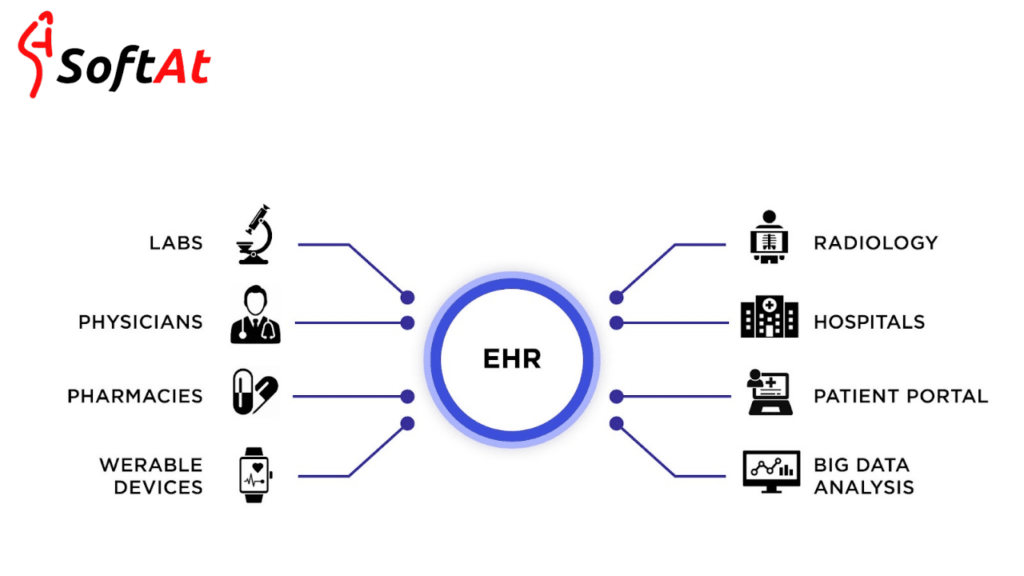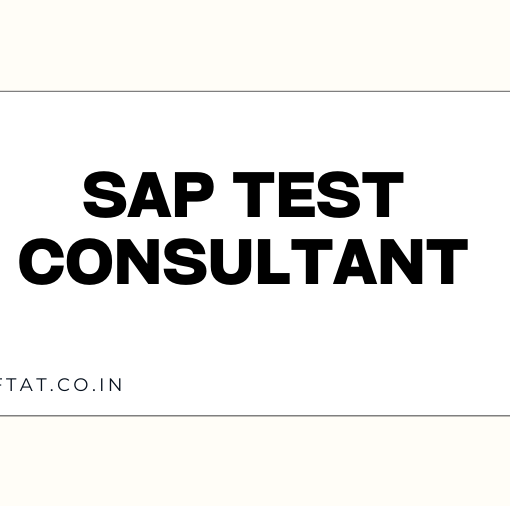Introduction
Industries are increasingly using customized solutions to handle their particular problems and improve operational efficiency in the ever changing economic and technological landscape. A “one-size-fits-all” strategy frequently fails in the current competitive environment. Whether an organization wants to improve patient care in the healthcare sector, optimize supply chains in manufacturing, improve customer experiences in retail, or secure financial transactions in the finance sector, industry-specific solutions that are tailored to each sector’s specific needs enable them to achieve their unique objectives.
1. Healthcare: Improving Patient Care and Operational Efficiency
- The healthcare industry is renowned for its complexity and wide range of demands, from enhancing patient outcomes to complying with regulations. These demands are met by customized healthcare solutions, which offer the appropriate instruments and technologies to improve treatment, effectiveness, and security. Here are some ways that customized solutions are having an effect:
Electronic Health Records (EHR) Systems

- Electronic Health Records (EHR) systems, a fundamental component of contemporary healthcare, have completely changed how patient data is handled. Customized EHR systems combine all patient care information into a single, cohesive system, including prescription data, test results, and medical histories. These solutions, which are made to meet the requirements of certain healthcare organizations, enable them to safely handle patient data, lower errors, and increase the effectiveness of care delivery.
- For instance, a large hospital network could require a different EHR system than a small clinic. Better utilization and easier integration are guaranteed when the system is customized to a healthcare provider’s size, specializations, and workflows.
Telemedicine and Remote Monitoring
- The COVID-19 pandemic has sped up the worldwide telemedicine boom, although demand for remote medical services is still rising outside of the pandemic. Healthcare professionals can interact with patients electronically using customized telemedicine solutions, providing monitoring, follow-ups, and consultations without requiring in-person visits. This is especially helpful for patients who live in remote or underdeveloped locations.
- In a similar vein, remote monitoring systems improve post-operative care and chronic illness management by enabling medical professionals to remotely monitor patients’ vital signs and health problems. By customizing these systems to meet the demands of each patient, efficient and economical individualized care is made possible.
Predictive Analytics for Improved Outcomes
- In the healthcare industry, data analytics is essential, and customized predictive analytics solutions can greatly enhance patient outcomes. Healthcare professionals can predict possible health concerns, identify diseases early, and improve treatment approaches by examining past patient data and finding trends.
- Predictive analytics, for instance, can assist medical facilities in identifying patients who are susceptible to readmission, enabling focused treatments to shorten hospital stays. Customized analytics programs guarantee that the appropriate data is examined in the appropriate setting, yielding useful information that improves patient care.
Regulatory Compliance
- In the healthcare industry, data analytics is essential, and customized predictive analytics solutions can greatly enhance patient outcomes. Healthcare professionals can predict possible health concerns, identify diseases early, and improve treatment approaches by examining past patient data and finding trends.
- Predictive analytics, for instance, can assist medical facilities in identifying patients who are susceptible to readmission, enabling focused treatments to shorten hospital stays. Customized analytics programs guarantee that the appropriate data is examined in the appropriate setting, yielding useful information that improves patient care.
2. Manufacturing: Enhancing Efficiency and Reducing Costs
- In the fast-paced and intricate manufacturing sector, cost containment, quality assurance, and operational efficiency are critical. Manufacturers now need customized solutions to stay competitive, particularly as they adopt Industry 4.0 technologies and digital transformation. Manufacturing is being transformed by customized solutions in the following ways:
Supply Chain Optimization
- Manufacturing operations are based on a well-managed supply chain. From locating raw materials to shipping completed items, firms can monitor and improve every part of their supply chains with customized supply chain management (SCM) solutions.
- A customized SCM solution, for instance, can offer real-time information on order statuses, supplier performance, and inventory levels, enabling businesses to take proactive measures to resolve possible problems before they interfere with production. Manufacturers may reduce waste and guarantee on-time delivery by employing analytics to forecast changes in demand and modify their supply chain strategies accordingly.
Predictive Maintenance
- Predictive maintenance has been made possible by the use of sensors and the Internet of Things (IoT) in manufacturing machinery. Customized predictive maintenance programs use data to forecast when equipment is likely to break and track the state of machinery in real time. This prolongs the life of vital machinery, lowers maintenance costs, and minimizes unplanned downtime.
- Predictive maintenance systems, for example, can track assembly line robot performance in an automobile manufacturing facility and replace parts before they break. Manufacturers may more easily set up maintenance plans and notifications tailored to their manufacturing processes with customized solutions.
Automation and Robotics
- Automation and robotics are revolutionizing production by increasing safety and productivity. Customized robotic systems are made to fit the unique needs of every production process, including quality control, assembly lines, and packaging.
- For instance, a robot employed in a food packaging facility will have different capabilities and requirements than one designed for assembling electronic components. Maximal efficiency, less human error, and enhanced worker safety are guaranteed when robotic systems are customized to the requirements of the activity.
Data-Driven Production Optimization
- In manufacturing, data analytics is a potent instrument that aids businesses in streamlining their production procedures. From the use of raw materials to the consumption of energy, customized analytics systems can track every facet of production and offer insights that support producers in making data-driven decisions.
- Customized data systems, for instance, can identify manufacturing line inefficiencies—like energy waste or excessive downtime—and recommend fixes. Manufacturers may save operating costs, increase throughput, and improve product quality with the aid of these customized solutions.
3. Retail: Personalizing Customer Experiences and Optimizing Operations
- The emergence of e-commerce, changing consumer demands, and technology breakthroughs have all had a substantial impact on the retail sector. In order to maintain their competitiveness, provide individualized experiences, and optimize processes, retailers increasingly need customized solutions. Retail is being impacted by customized solutions in the following ways:
Customer Relationship Management (CRM)
- Retailers manage client data, monitor interactions, and provide individualized experiences by utilizing bespoke client Relationship Management (CRM) solutions. Retailers may segment their consumer base, comprehend personal preferences, and create focused marketing efforts with the help of customized CRMs.
- Because luxury brands must concentrate on high-value, devoted clients, their CRM strategies may differ from those of mass-market retailers. Customized CRM solutions assist companies in interacting with clients in ways that suit their unique requirements and habits.
Inventory Management and Demand Forecasting
- In retail, where the proper stock balance may make or break a sale, inventory management is essential. Retailers can manage suppliers, optimize replenishment schedules, and track stock levels in real time with the use of customized inventory management systems.
- With the help of sophisticated demand forecasting technologies driven by analytics and artificial intelligence, businesses can anticipate future sales patterns and modify their inventory appropriately. For instance, a fashion retailer can anticipate the seasonal demand for specific products, preventing overstocking of less popular items while guaranteeing that popular items are always available.
Omnichannel Retailing
- Customers may buy easily on both online and offline channels thanks to omnichannel retailing. Businesses may combine their online and physical storefronts with tailored e-commerce solutions, providing a uniform experience across all platforms. Examples of customized solutions that improve the customer journey include cross-channel promotions, order tracking, and personalized recommendations.
- A customer who purchases shoes online, for instance, can be eligible for a special discount on complementary items when they visit the actual store. By fostering a smooth and customized purchasing experience, these solutions promote client loyalty and boost revenue.
Point-of-Sale (POS) Systems
- Retailers need customized point-of-sale (POS) systems to manage consumer data, track sales, and expedite transactions. Inventory and loyalty programs, among other retail management tools, can be integrated with custom point-of-sale (POS) solutions to provide a comprehensive picture of corporate operations.
- A POS system at a small boutique, for instance, might prioritize usability and simplicity, whereas a major retail chain might need more sophisticated capabilities like customer segmentation and detailed reporting. Retailers can effectively handle transactions of any size with customized point-of-sale systems.
4. Finance: Strengthening Security and Enhancing Customer Experience
- The highly regulated financial services industry requires solutions that are safe, effective, and focused on the needs of the client. Financial institutions are using tailored solutions to enhance security, streamline operations, and provide individualized client experiences. The following are some ways that customized solutions are changing the financial sector:
Fraud Detection and Prevention
- Customized fraud detection systems examine financial transactions for indications of questionable behavior using sophisticated algorithms and machine learning. Financial institutions can swiftly detect and address fraud attempts by tailoring these solutions to their unique requirements, safeguarding both their clients and the company.
- A bank might, for instance, customize its fraud detection program to target particular transaction kinds or consumer habits, like risky foreign transfers. The bank’s capacity to identify fraud early and reduce possible losses is enhanced by these solutions.
Risk Management
- Risk management is essential in finance. Institutions can make well-informed decisions by evaluating market, credit, and operational risks with the use of customized risk management systems. These solutions can be tailored to target the institution’s unique risk exposures, including as exposure to cybersecurity threats, mortgage defaults, or fluctuations in foreign exchange.
- A retail bank might be more concerned with credit risk and loan defaults, whereas an investment bank might need risk management solutions that emphasize asset valuation and portfolio diversification.
Customer Personalization
- Financial institutions can provide their customers with individualized services by using tailored solutions. Based on the unique profiles and preferences of each consumer, banks can design customized financial products like credit cards, insurance, and loans using custom-built platforms. By delivering precise and timely information, AI-powered chatbots and digital assistants also contribute to better customer service.
- A customer might, for instance, receive a personalized loan offer with terms based on their preferences, financial objectives, and credit history. Customer loyalty and happiness are increased by this degree of customisation.
Regulatory Compliance
- Financial institutions must comply with a number of intricate regulations, and failure to do so may result in significant penalties. Financial organizations are guaranteed to adhere to laws like AML (Anti-Money Laundering), KYC (Know Your Customer), and GDPR (General Data Protection Regulation) thanks to customized compliance solutions. Tailored compliance solutions facilitate reporting, keep an eye on transactions for questionable activity, and guarantee the safe handling of client data.
Conclusion
- For sectors like healthcare, manufacturing, retail, and finance to overcome the particular difficulties they encounter, customized solutions are crucial. These solutions boost customer satisfaction, guarantee compliance, promote innovation, and increase operational efficiency by providing tailored tactics and resources.
- The demand for industry-specific solutions will only increase as technology develops further. Businesses who use these solutions will be in a strong position to maintain their leadership position while streamlining their processes and providing customers with value. Tailored solutions are the key to success in today’s competitive marketplace, whether the goal is to improve patient care in the healthcare industry, increase operational efficiency in manufacturing, personalize shopping experiences in retail, or improve security in the financial industry.
You may be interested in:
A Deep Dive into SAP API Management
Integration cloud system to HANA Cloud Platform using Cloud Connector





